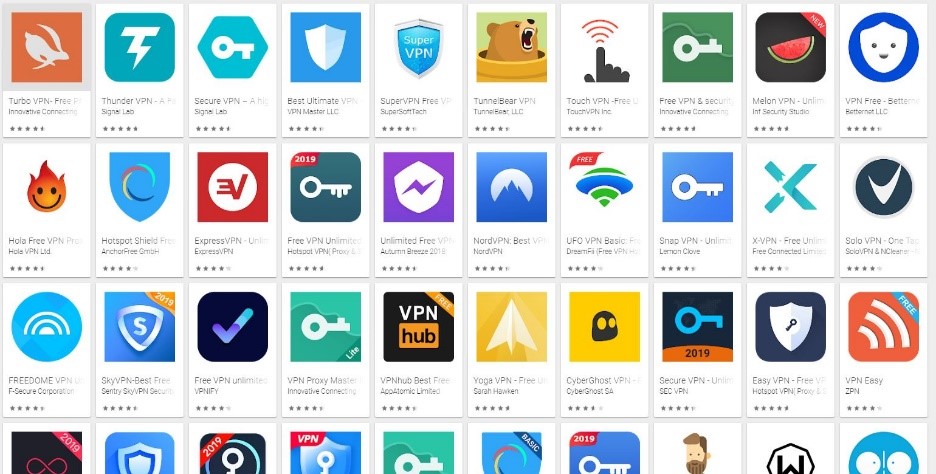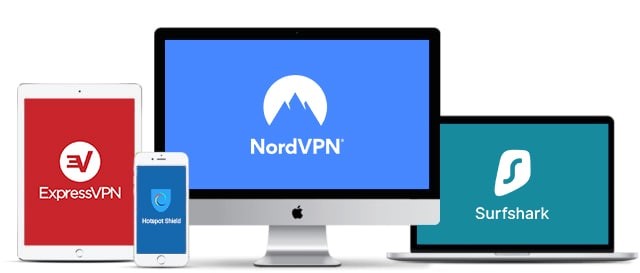Travelling was such a thing of the past ever since the pandemic roared in. With all gates slowly opening, we are off to our favourite destinations. As travellers, you have locks for your items, but what about your online credentials?
When traveling, you come across many new Wi-Fi hotspots, new sites, new security protocols, and more. Given the fact that your world revolves around your smartphone, it would be a good idea to improve your online privacy.
Whether you’re an American traveling to the UK and want to be streaming American Netflix in UK, there are certain protocols necessary to protect your device from getting harmed.
Therefore, we have compiled 5 crucial tips for you to secure your online experience during traveling. Some of these pointers are useful whether you’re traveling or not. Let’s get started:
Virtual Private Networks (VPNs)
The growing need of the online world is turning Virtual Private Networks (VPNs) into a permanent partner for your devices. These networks protect your surfing experience on public domains by hiding your IP address. This way, your surfing, transactions, or activities are safe and secure from any hackers and threats.
When traveling to the UK, always have a VPN on when connecting to Wi-Fi. This is a pro tip for all freelancers and online business owners as well. Punching in credentials for payments or login for social media is risky on such public space Wi-Fis so be sure to equip yourself with a VPN.

On a plus side, if you’re in the UK and miss your home country Netflix watchlist, you can change your region through VPN and can access your favourite region of Netflix, be it Asia, UK, US, Australia, etc.
Some of the best VPNs currently in the market include:
- NordVPN
- Surfshark
- ExpressVPN
- CyberGhost
- Norton Secure VPN
- IP Vanish
- ZenMate
- ProtonVPN
- Private Internet Access
- Hotspot Shield
Passcodes and Passwords
Some of us are carefree to not have our devices equipped with password protection. That is because we don’t have anything to hide. But when it comes to traveling, there is uncompromisable data at risk. No matter if it is a laptop, gaming console, or smartphone, it should be equipped with a strong passcode or password.
Furthermore, to be extra safe, your apps should also be accessible through passcodes or fingerprints. If you are an iPhone user, you know it mandates you to have a security protection mode setup. Either way, it should be a priority to have passcodes and passwords set up.
It goes without saying but it should be made unique. There is a popular technique used by hackers where they guess your password based on a few details of your credentials.
You should steer clear of using your name, age, or year, and make it as mysterious as possible. For example, a favourite TV show, place of childhood, celebrity, restaurant, character name, etc. (provided it is not already part of your e-mail address).
Use only Password Protected Wi-Fi Networks
Are you the kind of person who gets excited over an open Wi-Fi network? Think again! These open Wi-Fis are hotspots open to access all your data. It can be important credentials, booking details, credit card information, and much more. Make it a thumb rule to not use open Wi-Fi connections at all during traveling.

There is an exception here. Let’s say you’re at a coffee shop and it has a signboard that displays free Wi-Fi, you can consider it safe. But there is another risk here. In this situation, you may come across multiple open network devices in your area.
This will spark another concern about the one offered by the shop. In this case, you must check the spelling properly. Most hackers sit in this area with their hotspot with similar names to the open Wi-Fi.
It’s a matter of personal security if you do transactions, logins, and surfing from an open Wi-Fi network so opt for a password-protected Wi-Fi network by default.
Scroll Secure Sites
A new location does not mean you give up scrolling. But since you’re at a vulnerable place and don’t want to have a security risk stopping you from having fun, it would be a good idea to use secure sites.
There’s no need for you to check out the new link or new site without having your security measures up. Most sites are designed in such a way that they maintain your security levels whether you’re accessing from a different location or connection.
Many booking sites have a secure Hypertext Transfer Protocol Secure (HTTPS). This can help you differentiate between a safe and unsafe site. Any website beginning with HTTPS is proof that it has strict security measures that are not at risk to exploit your data.
It would probably be a better idea to do less surfing and streaming and more cruising around the streets and hotels (since you’re on vacation).
Keep tabs on your accounts
Modern-day banking allows us to keep track of our finances and accounts. This is why it is important to check your accounts at the start of the day and keep track of your use. This will make sure you don’t have any unexpected withdrawals from your accounts. If you do, you must contact your banks for a proper check.
This is not only limited to your banks. You must also check your activity log of social accounts and check whether there is any activity you’re not familiar with. Maybe an open Wi-Fi stuck with your social accounts long enough to post something unorthodox (you never know!).
Conclusion
I know you must feel like cancelling your trip by now, based on the number of security measures listed. But as the internet age grows, we must be this much cautious.
There is also the possibility that you shut off all your devices, throw them in the safe, and celebrate the vacation. But that wouldn’t be necessary if you follow the tips to have a safe and successful vacation. Cheers!



 Bitcoin
Bitcoin  Ethereum
Ethereum  Tether
Tether  XRP
XRP  Solana
Solana  USDC
USDC  Cardano
Cardano  TRON
TRON  Lido Staked Ether
Lido Staked Ether  Avalanche
Avalanche  Toncoin
Toncoin